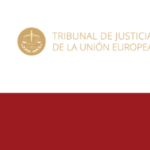An objection to such access must explain the nature, purpose and scope of the data whose disclosure would undermine commercial interests
In the judgments in PTC Therapeutics International v EMA (C-175/18 P) and MSD Animal Health Innovation and Intervet International v EMA (C-178/18 P), delivered on 22 January 2020, the Court of Justice was required to examine, for the first time, the question of access to European Union documents submitted in the context of marketing authorisation (MA) applications. In this instance, it dismissed the appeals brought by, on the one hand, PTC Therapeutics International and, on the other, MSD Animal Health Innovation and Intervet International against the judgments of the General Court dismissing their actions for annulment of the decisions by which the European Medicines Agency (EMA) had granted access to documents containing information submitted in the context of the procedure relating to MA applications for medicinal products.
Both cases concern the legality of the EMA’s decisions to grant, under Regulation No 1049/2001, access to a number of documents, namely toxicology reports and a clinical study report (the
reports at issue), submitted by the appellants in the context of their MA applications relating to two medicinal products, one for human use (Case C-175/18 P) and the other for veterinary use (Case
C-178/18 P). In the present case, after authorising the placing on the market of those medicinal products, the EMA decided to disclose the content of those reports to third parties, subject to some
redactions. Unlike the appellants, who claimed that those reports should benefit from a presumption of confidentiality in their entirety, the EMA contended that, apart from the information
that had already been redacted, those reports were not confidential.
Thus, the Court of Justice examined, as a first step, the application of a general presumption of confidentiality by an EU institution, body, office or agency which had received an application for
access to documents.
As a second step, the Court of Justice addressed the question whether the EMA’s decision to grant access to the reports at issue had undermined the appellants’ commercial interests, an exception
laid down in the first indent of Article 4 of Regulation No 1049/2001.
Thirdly, the Court of Justice pointed out that the General Court was entitled to rely on implicit reasoning when addressing arguments, raised by a party, that were not sufficiently clear and
precise.
Fourthly, the Court of Justice analysed the exception to the right of access to documents relating to the protection of the decision-making process, as provided for in the first subparagraph of Article 4 of Regulation No 1049/2001.







Leave a Reply